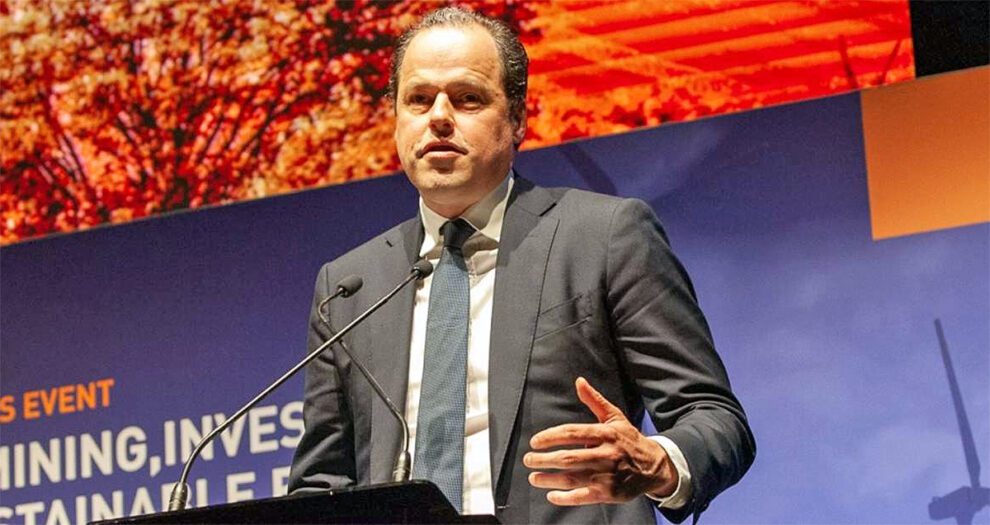Mineral producers need to be significantly more open about partnerships and collaborate more methodically, a purchasing guru urged.
BHP group procurement officer James Agar wants the entire mining sector to collaborate systematically and be more radically transparent.
Agar believes the industry should reflect on past experiences from the pandemic and use them to strengthen resilience in the face of supply chain constraints. Global economic outlooks have also not improved despite enduring the worst of coronavirus (COVID) lockdowns.
“As a result of COVID global demand vanished almost overnight. What we learnt is that we cannot do it alone, we need to work collaborative and we need to be more transparent with our partners,” he said at the 2022 International Mining and Resources Conference.
“Labour markets are tight globally with no sign of easing soon. The energy crisis in Europe is profound and will continue to drive volatility in energy markets.”
The mining giant will respond to this trend through pursuing a policy of “radical transparency and systematic collaboration” to ease trading pressures. This requires building relationships with all stakeholders who support BHP operations, regardless of operational size.
“We have not always been perfect in this regard,” Agar said.














What safeguards and/or assurances are in place that once on site operations are largely and reliably undertaken from a ROC, that the company(s) will not seek to relocate the ROC(s) offshore where it is able to access a cheaper, foreign labour market? Just like a Telstra call centre… Because once that is permitted to occur, the Australian people will see next to ZERO returns for thier countries natural resources. There will be much less money injected into the income stream of the Australian working class, (which is spent by Australians, at Australian businesses largely.) there will be less income tax for fed/state budgets… The State/Federal Government will still get thier royalties but we all know how much of those royalties is p#**ed up the wall and/or syphoned off into other people’s pockets, and how much actual value the Australian people get in return for that money. Let’s not forget to mention that ‘our’ Government will most likely continue to subsidise the industry ‘to attract investment’ and at the expense of the Australian taxpayer. (Just how do you think the mining industry pays only a fraction for its fuel compared to the Australian public???) I’m not nieve, the industry will continue to seek ever increasing profit margins and/or ROI and I understand that automation will inevitably play a larger role in the industry, but I think we are doing NEXT TO NOTHING to ensure a decent piece of the pie stays here on Australian shores. AND IN ACTUAL AUSTRALIAN HANDS. *Just like we see communities in agricultural regions economically DECIMATED by the domination of the consumer markets by only a handful of semi-cooperative entities, we will see many industry sectors face even larger struggles if the resource sector is allowed to access offshore labour markets for its day-to-day operational requirements. And once our domestic labour market in the resource industry is gone, it’s gone for good. Remember the 2008 GFC, where the Australian economy ‘rode on the back of a dump truck’ out of the worst of the effects? You don’t suppose that was 100% due to mining royalties do you? No, that was largely thanks to the massive economic contribution that a domestically sourced labour market made. *Just add up, A) what the national costs are to the mining sector for its labour force and B) the income tax this income produces. Now, subtract that income from the COMMUNITIES income stream (people buying things at thier local retailer.) and subtract the taxable income from the Gov budgets that it ‘should’ be spent on. I can’t understate the implications of offshore ROC’s for the real-world Australian people and communities.